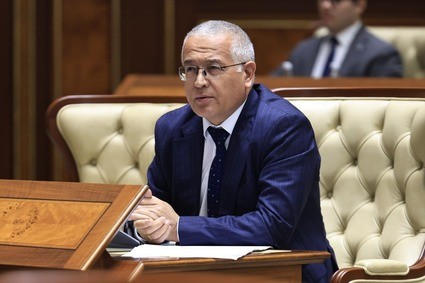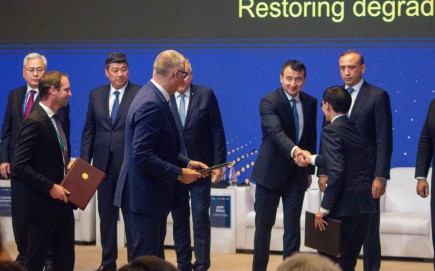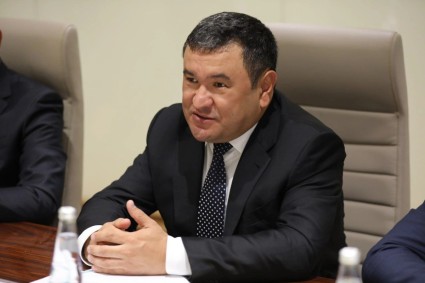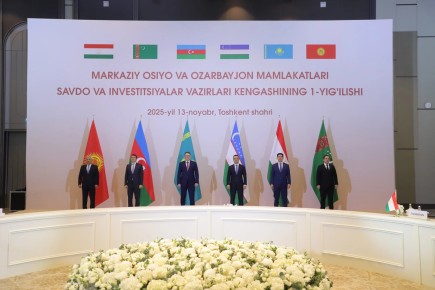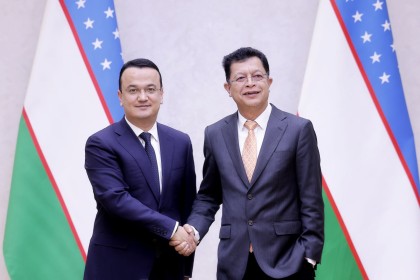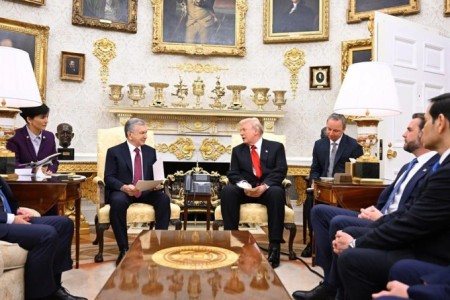Uzbekistan seeks to halve the shadow economy in five years and collect another 20 trillion soums to the budget in 2025.
At a meeting of the Senate on December 19, where, among other items were approved the main axes of tax policy for 2025, Senator Abdulkhakim Eshmuratov asked what was planned to be done next year to reduce the shadow economy, increase revenue of the state budget, and facilitate doing business to encourage them to pay taxes.
First Deputy Chairman of the Tax Committee, Mubin Mirzayev said that tax authorities were focusing on the digitalization of tax administration.
“Reducing the share of the shadow economy is a sensitive but priority issue… We discussed the most pressing issues and prepared a draft presidential decree on reducing the shadow economy. Today, we submitted it to the Cabinet of Ministers,” he said.
According to the draft document, it is planned to increase the state budget revenues by 20 trillion soums by reducing the shadow economy.
Of this amount, 3.5 trillion soums are planned to be raised by identifying cases of pseudo-entrepreneurship (when businesses are started without genuine intention to do business but to get loans, tax evasion or other benefits).
We are talking about false transactions for unaccounted goods and services, when companies issue documents for goods or services that did not actually exist.
They will also combat artificial offsetting of value-added tax, when companies create fictitious documents to reduce the amount of VAT that they must pay to the budget.
Tax authorities will also identify "one-day firms" through which large sums are being circulated and bad tax debt are being accumulated. This is a tax debt that is deemed irrecoverable because the taxpayer cannot pay it off due to the lack of real assets or due to its liquidation.
In particular, it is planned to identify the beneficiaries and owners of the property of "one-day firms" in order to fully recover unpaid taxes and damages.
The second area is the fight against price manipulation for tax evasion, especially in the real estate and construction industries, which should bring an additional 1.5 trillion soums in revenue to the budget.
Among the tax fraud schemes, developers or real estate sellers execute transactions at a price much lower than the actual market value in order to reduce taxes, which are calculated based on the cost of the transaction, and hide part of the income. For example, an apartment that costs 1 billion soums is officially sold for 500 million soums. As a result, taxes are paid only from 500 million soums, and the rest is transferred "in an envelope".
The second scheme is when individuals contribute construction materials (e.g. cement, reinforcement, paint) as a contribution to the company's authorized capital. The items can be valued at a lower or higher cost. As a result, the company's tax liabilities are reduced.
Another scheme is when the owner transfers a real estate (e.g. an apartment or commercial premises) as a share or contribution to another business.
In this case, a facility is valued much lower than the market value. Then this object is sold at a reduced price in order to minimize taxes.
The Tax Committee will also monitor companies with significant inventory balances that regularly carry out import operations, but indicate a very low profitability of 1% in order to evade taxes.
At the same time, together with the Department for Combating Economic Crimes, it is planned to collect an additional 1 trillion soums in the sale of alcohol and tobacco products.
Using information systems and risk analysis, the authorities will also study customs benefits for each enterprise, cases of shadow import of goods without indication in documents, declaration at low prices in order to reduce customs duties, customs fees and VAT. These measures are expected to allow collecting an additional 4.3 trillion soums.
“In the next five years, it is planned to reduce the share of the shadow economy by half. To this end, the Tax Committee, Customs Committee, Ministry of Economy and Finance, Central Bank and Prosecutor General’s Office will work together in an accelerated mode,” Mubin Mirzayev summarized.
At the beginning of this year, President Shavkat Mirziyoyev stated that the damage to the state budget from the shadow economy was estimated at 30 trillion soums, and the damage to GDP at 135 trillion soums. Almost 11 thousand developers (41%) indicated only 1 employee in their reports. "The shadow economy is a big obstacle for honest entrepreneurs," he said.

